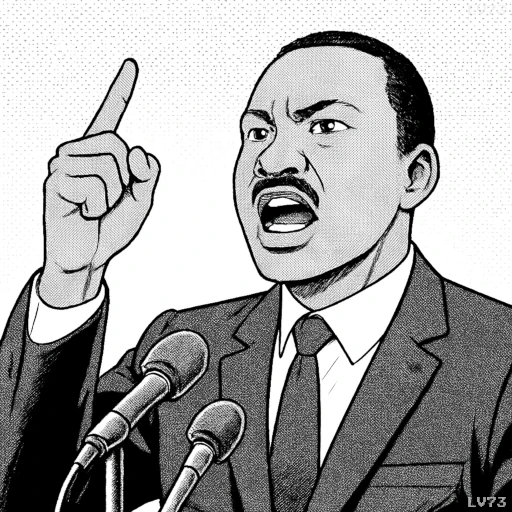“We must develop and maintain the capacity to forgive. He who is devoid of the power to forgive is devoid of the power to love. There is some good in the worst of us and some evil in the best of us. When we discover this, we are less prone to hate our enemies.”

- January 15, 1929 – April 4, 1968
- African American
- Pastor and civil rights leader
table of contents
Quote
“We must develop and maintain the capacity to forgive. He who is devoid of the power to forgive is devoid of the power to love. There is some good in the worst of us and some evil in the best of us. When we discover this, we are less prone to hate our enemies.”
Explanation
In this quote, King emphasizes the importance of forgiveness as a foundation for love and compassion. He suggests that the ability to forgive is essential for genuine love, as harboring resentment makes it difficult to connect with others on a meaningful level. King also highlights the complexity of human nature by acknowledging that no one is entirely good or entirely bad; each person embodies a mix of virtues and flaws. This understanding encourages empathy and discourages hatred, reminding us that even those we consider enemies share common humanity with us.
King’s perspective on forgiveness reflects his commitment to nonviolence and reconciliation. He believed that by recognizing the duality within each of us—the potential for both good and evil—we are less likely to respond to harm with hatred or bitterness. For King, forgiveness was not only a way to heal relationships but also a means of maintaining one’s own peace and integrity. He saw that forgiveness allows people to move beyond anger and resentment, enabling them to approach others with empathy and understanding rather than hostility.
Today, King’s message serves as a powerful reminder of the transformative role of forgiveness in creating compassionate and inclusive communities. His words encourage us to let go of hatred by acknowledging our shared human complexities. King’s insight challenges us to approach conflicts with a forgiving heart, seeing beyond the flaws of others to recognize the potential for good within each person. By cultivating forgiveness, we foster an environment where love and understanding prevail over animosity, enabling us to build connections based on compassion and shared humanity.
Would you like to share your impressions or related stories about this quote in the comments section?





